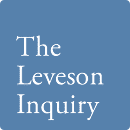Leveson Inquiry: The story so far
 Marta Cooper looks at what we’ve learned from the UK’s investigation into the press
Marta Cooper looks at what we’ve learned from the UK’s investigation into the press
(more…)
 Marta Cooper looks at what we’ve learned from the UK’s investigation into the press
Marta Cooper looks at what we’ve learned from the UK’s investigation into the press
(more…)
 Any reduction in the scope of the Freedom of Information Act in limiting its costs or capping the number of requests organisations can make will have an impact on Article 10 rights to freedom of expression, Index has said in a submission to the Commons Justice Select Committee.
Any reduction in the scope of the Freedom of Information Act in limiting its costs or capping the number of requests organisations can make will have an impact on Article 10 rights to freedom of expression, Index has said in a submission to the Commons Justice Select Committee.
(more…)
Cross-posted at Hacked Off
There is fury and fear among Sun staff after the latest round of arrests by police investigating the alleged corruption of public servants by journalists, and there is more widespread alarm about the future of the press. Where will this end? Will other papers close, as the News of the World did? Is the baby of free expression about to go down the plughole with the murky bathwater of journalistic misconduct?
The anxiety is likely to increase as Rupert Murdoch visits London this week. Though he has said he has no intention of closing the Sun, he is not (how to put this?) a man distinguished by the rigid keeping of his word. It is easy to see why nerves are frayed.
But the picture is not as bleak as some fear, and News International and the Metropolitan police are only doing what they have to do in a society ruled by law. (We need to note, too, that nobody has been charged with anything.)
It is only a few months since News International was rightly lambasted for covering up evidence of, and information about, potentially criminal activities. That material, about phone hacking, had to be dragged out of the company, notably by civil litigants who for the most part have now settled their cases.
If, as seems to be the case, the company is now diligently searching its databases and handing everything suspicious that it finds to the police, then we should be grateful. Nor can we complain that junior figures are suffering the consequences while the top brass are spared: those arrested (and bailed) are for the most part big hitters.
As for the Met, it is doing its job. It may well be doing it with a special zeal, in response to criticisms about a previous absence of zeal, but we can hardly complain about that either. And it is not as though it can make up new laws. Where they have information about possible breaches of the law the police are supposed to investigate, question, search and so forth, and that is what they are doing here.
Corrupting officials matters, too. If local government officials take bribes to fix planning applications for builders, or if defence officials take bribes when awarding arms contracts, we expect prosecutions of both those who pay and those who receive. More than that, we expect the press to expose such wrongdoing, and journalists tend to take pride in the work. Corruption creates injustice and is anti-democratic.
Will the pursuit of these matters lead to unwanted consequences? Will it corrode free expression? I cant see why.
There are no grounds for Murdoch to close the Sun, and if he were to do so it would be another short-sighted, cowardly and capricious act like the closure of the News of the World. He has to take responsibility, show leadership and steer his paper (which is by any measure a national institution) through the crisis.
Does it follow that other papers are in danger? I have no idea, but if journalists on other papers have been bribing public officials (something which nobody can fail to realise is against the law) then they need to face the consequences. It is no use saying that the law is wrong or unfair; if that is the case the right course is to try to change the law, not to ignore it. (Newspapers are rarely tolerant of others who consider themselves above the law.)
The bathwater of unethical and illegal practices in journalism needs to be drained, and the Leveson process exists to do that. There is no reason to suppose that the baby of free expression will be washed away in the process. A far more realistic prospect is that, if we are persuaded to leave this bathwater where it is, the baby will drown in it. Corrupt journalism is the enemy of free expression; it places us at the mercy of monopolists, bullies and lawbreakers. We surely don’t want that.
Brian Cathcart, a founder of Hacked Off, teaches journalism at Kingston University London. He tweets at @BrianCathcart
Yesterday, Bahraini authorities denied visas to a number foreign journalists ahead of the anniversary of Bahrain’s 14 February uprising. Journalists from the New York Times, Christian Science Monitor, the Wall Street Journal, the BBC, Associated Foreign Press, and Al-Jazeera English were all denied visas “due to the high volume of applications”. Local activists expect a violent crackdown on 14 February, as protesters have vowed to return to the now closed Pearl Roundabout.
Among the journalists refused visas are Adam Ellick and the New York Times’s Nicholas Kristof. Ellick told Index that members of Bahrain’s media office had previously assured him that he would be able to “come back anytime”. This pledge was made during Ellick’s last trip in December 2011, during which both he and Kristof were were detained while reporting on protests.
Kristen Chick, a correspondent for the Christian Science Monitor was also denied a visa yesterday. Like Kristof, she also reported from Bahrain during the crackdown.
On Twitter, the authority said it processed applications in the order that they were received, prioritising the earliest applications. The head of the Information Affairs Authority, Sheikh Fawaz, said that the government wanted to “[ensure] a wide range of international media here during this time”.
Last month, the Information Affairs Authority (IAA) sent Index a letter clarifying its stance on “media censorship,” boasting that 700 foreign journalists were allowed to enter the country to cover the Bahrain Air show. It is unclear how many journalists were allowed to enter the country to cover 14 February, but the IAA is insisting that they are allowing many foreign outlets to cover the anniversary of the uprisings. The IAA claim they have granted a number of foreign journalists visas to cover the anniversary, they named Voice of America, BBC, Reuters, Associated Press and Russia El Youm as major news sites allowed to enter the country to cover the anniversary of the uprisings in the tiny country.
Brian Dooley of Human Rights First, who was also denied a visa to enter the country in January, told the Los Angeles Times that “the government is only fuelling suspicions that they don’t want the rest of the world to see what’s going to happen”.
Maryam Al-Khawaja, Head of Foreign Affairs for the Bahrain Centre for Human Rights said that the denied visas were not “a good sign,” and added that it was “even more worrisome that NGOs are not being allowed in either”.
Last month, Dooley, Rick Sollom from Physicians for Human Rights and a delegation from Freedom House were all denied visas, and invited to return at the end of February. The e-mail denying visas to journalists also invited them to return at the end of February, when the “National Commissions work implementing the recommendations of the Bahrain Independent Commission of Inquiry (BICI)” would be completed.
The Bahrain Centre for Human Rights anticipates an escalation in the protests on 14 February. Al-Khawaja said “high numbers of protesters will continuously attempt to access what was Pearl Square, and the government will use excessive violence to keep them out.”